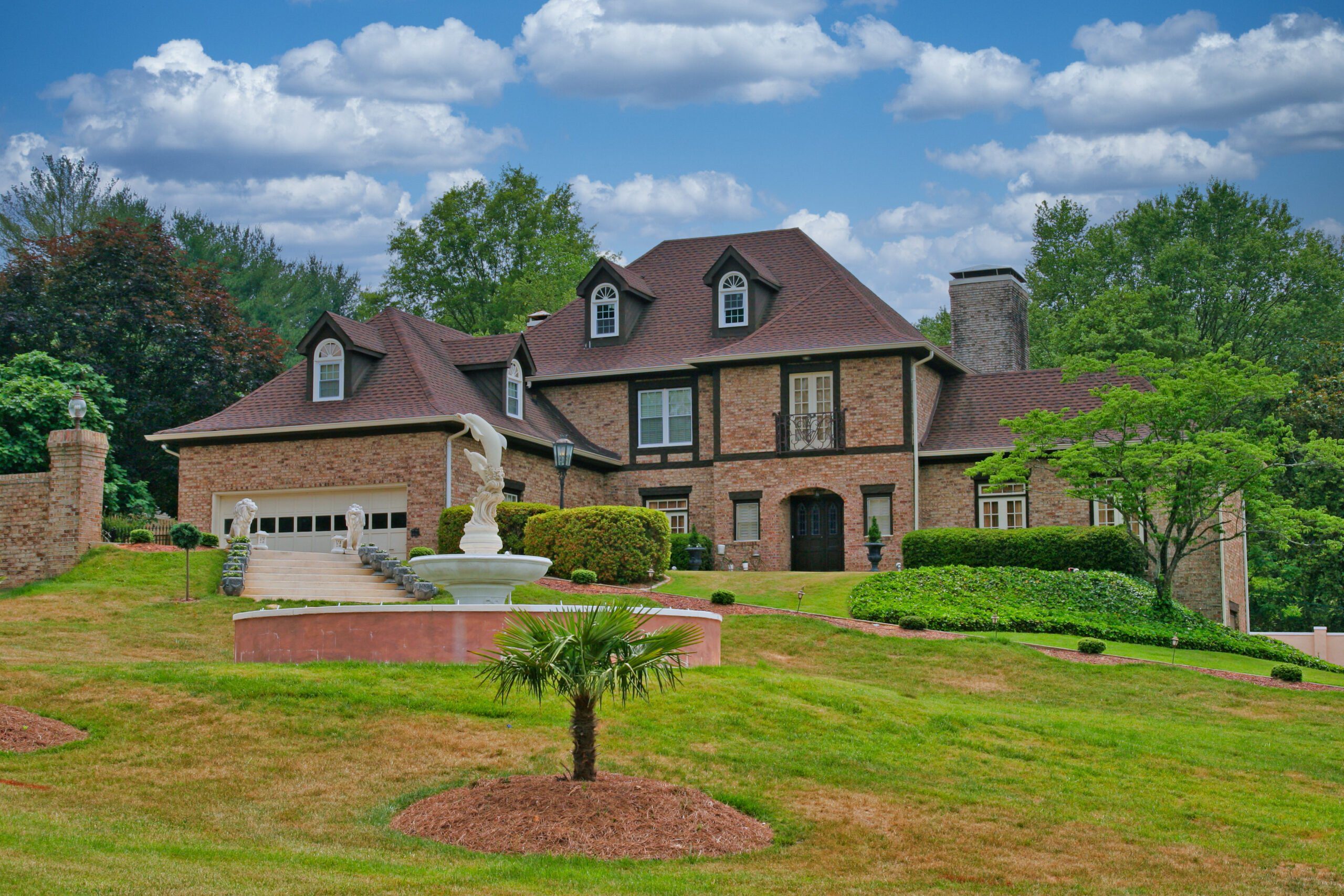Fractional Ownership: Maximizing Opportunities in the Real Estate Market
Fractional Ownership: Maximizing Opportunities in the Real Estate Market


Table of Contents
Introduction
In the dynamic landscape of real estate, innovative approaches continuously emerge to meet the evolving needs and preferences of buyers and sellers. Fractional ownership has swiftly risen to prominence as one such approach, offering a plethora of advantages for participants on both sides of the transaction. This article embarks on a comprehensive exploration of the manifold benefits inherent in fractional ownership real estate, elucidating why it has become an increasingly favored option in the realm of property investment and ownership.
Fractional ownership fundamentally transforms the traditional paradigm of property ownership by enabling multiple individuals to collectively own shares in a single property. This arrangement is particularly prevalent in the realm of vacation homes and high-value assets, where the cost of sole ownership may be prohibitive for individual buyers. Each owner holds a distinct percentage of ownership, entitling them to use the property for a specified period annually. This model not only democratizes access to coveted properties but also fosters a sense of shared ownership and responsibility among co-owners.
The concept of fractional ownership is not entirely novel, having roots in the time-share model that gained popularity in the latter half of the 20th century. However, fractional ownership distinguishes itself by affording participants a tangible stake in the property, often through deeded ownership, rather than merely granting the right to use the property for a predetermined duration. This distinction imbues fractional ownership arrangements with a greater sense of permanence and investment potential, aligning more closely with traditional property ownership models while retaining the benefits of shared usage and cost-sharing.
As the real estate landscape continues to evolve, fractional ownership has emerged as a compelling alternative for individuals seeking to invest in property without shouldering the full financial burden or commitment associated with sole ownership. This article delves into the advantages that fractional ownership offers for both buyers and sellers, shedding light on the diverse opportunities it presents for investment, lifestyle enhancement, and wealth accumulation. By examining these benefits in detail, readers will gain a nuanced understanding of why fractional ownership has garnered increasing attention and adoption in the contemporary real estate market.


What is Fractional Ownership Real Estate?
Fractional ownership real estate represents a modern approach to property ownership that allows multiple individuals to collectively invest in and enjoy the benefits of owning a property. Unlike traditional sole ownership models, fractional ownership divides the ownership of a property into shares, with each share representing a percentage of ownership. This innovative arrangement enables investors to access high-value assets such as vacation homes, luxury condominiums, or prestigious estates without bearing the full financial burden or responsibility associated with sole ownership.
Fractional ownership typically revolves around the concept of deeded ownership, wherein each fractional owner holds a legally recognized interest in the property. This distinction from conventional timeshare models, where individuals purchase the right to use a property for a set period each year without actual ownership, grants fractional owners tangible ownership rights and responsibilities. Each owner’s share of ownership entitles them to use the property for a specified duration annually, often determined through a predetermined schedule or reservation system.
The structure of fractional ownership arrangements can vary widely depending on the specific property and the preferences of the co-owners. Some fractional ownership agreements allocate usage rights based on a fixed calendar schedule, while others employ a flexible reservation system that allows owners to book their desired usage periods in advance. Additionally, fractional ownership may involve the appointment of a management company or homeowners association to oversee the property’s maintenance, amenities, and financial affairs on behalf of the co-owners.
Fractional ownership arrangements often include provisions for decision-making and governance, ensuring that all co-owners have a voice in key matters pertaining to the property. These provisions may outline procedures for resolving disputes, making major decisions regarding the property, and allocating expenses related to maintenance, repairs, and upgrades. By establishing clear guidelines and mechanisms for cooperation and communication, fractional ownership arrangements seek to foster harmonious relationships among co-owners and promote the effective management of the property.
Overall, fractional ownership real estate represents a modern and flexible approach to property ownership that offers individuals the opportunity to invest in and enjoy premium properties without the constraints of sole ownership. By dividing ownership into shares and providing co-owners with tangible rights and responsibilities, fractional ownership unlocks new avenues for investment, lifestyle enhancement, and wealth accumulation in the ever-evolving landscape of real estate.


Advantages for Buyers
Fractional ownership real estate offers a myriad of advantages for buyers, ranging from enhanced diversification of investment portfolios to access to luxury properties that might otherwise be financially out of reach. Below, we delve into each advantage in detail, highlighting the unique benefits that fractional ownership presents for prospective buyers:
1. Diversification of Investment
One of the most compelling advantages of fractional ownership is its ability to facilitate diversification within an investment portfolio. By acquiring shares in multiple properties across different locations and asset classes, buyers can spread their investment risk and potentially enhance returns. This diversification strategy is particularly advantageous in the volatile real estate market, where individual properties may be subject to fluctuations in value and demand.
2. Access to Luxury Properties
Fractional ownership unlocks the doors to exclusive and luxurious properties that may be unattainable for individual buyers due to their high purchase prices and ongoing maintenance costs. From sprawling beachfront villas to opulent urban penthouses, fractional ownership provides buyers with the opportunity to indulge in a lifestyle associated with premium real estate without the need for significant capital outlay.
3. Lower Financial Barrier to Entry
Unlike sole ownership, which often requires a substantial upfront investment, fractional ownership allows buyers to acquire a fractional interest in a property at a fraction of the cost. This lower barrier to entry democratizes access to desirable real estate markets and coveted properties, making ownership achievable for a broader range of individuals and investors.
4. Reduced Responsibility for Maintenance
In a fractional ownership arrangement, the responsibility for property maintenance and upkeep is shared among multiple owners. This shared responsibility not only reduces the financial burden on individual buyers but also ensures that the property is well-maintained and managed to a high standard. By pooling resources and expertise, co-owners can effectively address maintenance needs and preserve the value of the property over time.
5. Flexibility in Usage
Fractional ownership affords buyers flexibility in how they utilize the property. Unlike traditional timeshares, which often restrict usage to specific weeks or seasons, fractional ownership arrangements may offer greater flexibility in scheduling usage periods. Some arrangements even include exchange programs that allow owners to trade their usage rights for stays at other properties within the fractional ownership network, enabling them to explore diverse destinations and experiences.
Overall, fractional ownership real estate presents buyers with a unique opportunity to invest in premium properties, diversify their investment portfolios, and enjoy a luxurious lifestyle without the burdens of sole ownership. By leveraging the advantages of fractional ownership, buyers can access a world of possibilities in the real estate market and unlock new avenues for wealth creation and lifestyle enhancement.


Advantages for Sellers
Fractional ownership real estate not only benefits buyers but also offers significant advantages for sellers, ranging from increased liquidity to shared maintenance costs. Below, we explore each advantage in detail, shedding light on how fractional ownership arrangements can empower sellers in the real estate market:
1. Increased Liquidity
One of the primary advantages for sellers in fractional ownership real estate is the potential for increased liquidity. Unlike traditional sole ownership models, where selling an entire property may require significant time and effort, fractional ownership allows sellers to divest individual shares of the property more easily. This increased liquidity can expedite the sale process and provide sellers with greater flexibility in managing their real estate assets.
2. Attracting a Broader Market
By offering fractional ownership options, sellers can attract a broader market of potential buyers who may be interested in owning a share of a property without committing to full ownership. This expanded pool of buyers can increase demand for the property and potentially drive up its market value. Additionally, fractional ownership arrangements appeal to investors seeking to diversify their portfolios or individuals looking for alternative investment opportunities.
3. Shared Maintenance Costs
Fractional ownership spreads the responsibility for property maintenance and upkeep among multiple owners, thereby reducing the financial burden on individual sellers. Co-owners contribute proportionally to ongoing maintenance costs, ensuring that the property remains well-maintained and attractive to potential buyers. This shared cost-sharing mechanism not only benefits sellers in terms of financial savings but also preserves the property’s value and market appeal over time.
4. Potential for Higher Rental Income
Sellers in fractional ownership arrangements may have the opportunity to generate higher rental income compared to traditional sole ownership models. With multiple owners sharing usage rights, sellers can maximize rental income by offering the property for rent during periods when it would otherwise be vacant. This additional income stream can enhance the property’s overall financial performance and increase its attractiveness to prospective buyers.
Overall, fractional ownership real estate offers sellers a range of advantages, from increased liquidity and access to a broader market to shared maintenance costs and potential rental income. By embracing the potential of fractional ownership, sellers can unlock new opportunities for monetizing their properties and maximizing their returns in the dynamic real estate market.


Embracing the Potential of Fractional Ownership
Fractional ownership real estate stands as a transformative force in the world of property investment and ownership, offering a wealth of benefits for both buyers and sellers alike. This article has explored the myriad advantages inherent in fractional ownership arrangements, illuminating the opportunities they present for investors, lifestyle enthusiasts, and property owners. From enhanced diversification and access to luxury properties to increased liquidity and shared maintenance costs, fractional ownership unlocks new possibilities in the real estate market, reshaping the way properties are owned, managed, and monetized.
For buyers, fractional ownership represents a gateway to premium properties and diversified investment portfolios. By acquiring shares in multiple properties, buyers can spread their risk and potentially enhance their returns while enjoying the perks of owning high-value assets such as vacation homes or luxury condominiums. The lower financial barrier to entry and flexibility in usage further enhance the appeal of fractional ownership, offering buyers a path to realizing their real estate aspirations without the burdens of sole ownership.
Sellers, too, stand to benefit significantly from fractional ownership arrangements. Increased liquidity, access to a broader market, shared maintenance costs, and potential for higher rental income all contribute to the attractiveness of fractional ownership as a selling proposition. By embracing fractional ownership options, sellers can expedite the sale process, attract a wider pool of buyers, and optimize the financial performance of their properties in the competitive real estate market.
As the real estate landscape continues to evolve, embracing the potential of fractional ownership is paramount for investors, buyers, and sellers alike. By leveraging the advantages of fractional ownership, individuals can unlock new avenues for wealth creation, lifestyle enhancement, and investment diversification. Whether seeking to invest in premium properties, generate rental income, or optimize property assets, fractional ownership offers a flexible and innovative approach that resonates with the demands of modern real estate consumers.
In conclusion, fractional ownership real estate represents not only a pragmatic investment strategy but also a testament to the adaptability and ingenuity of the real estate industry. By embracing fractional ownership, investors and property owners can navigate the complexities of the real estate market with confidence, harnessing the power of shared ownership to achieve their financial and lifestyle goals in an ever-changing world.
FAQ Section
Fractional ownership and timeshares both involve shared ownership of a property, but there are fundamental differences between the two. Fractional ownership typically grants individuals a deeded share of ownership in the property, providing them with tangible ownership rights and responsibilities. In contrast, timeshares often entail purchasing the right to use a property for a specific period each year without actual ownership. Fractional ownership offers greater permanence and investment potential compared to timeshares, making it a more attractive option for individuals seeking long-term ownership and equity in a property.
Fractional ownership can indeed be a lucrative investment opportunity for individuals seeking to diversify their portfolios and access premium real estate assets. By acquiring shares in multiple properties, investors can spread their risk and potentially enhance their returns while enjoying the benefits of property ownership. However, like any investment, the success of fractional ownership depends on various factors such as property location, market trends, and management efficiency. It’s essential for prospective investors to conduct thorough due diligence and seek professional advice before committing to fractional ownership.
While fractional ownership offers numerous advantages, it’s essential to consider potential drawbacks before entering into an arrangement. These may include limitations on usage rights, conflicts among co-owners, additional fees for management and maintenance, and the risk of changes in property value. Fractional ownership also requires cooperation and communication among co-owners, which may present challenges in some cases. Prospective buyers should carefully review the terms and conditions of fractional ownership agreements and consider how they align with their individual preferences and investment goals.
5 Proven Strategies to Boost Your Home Equity
Want to boost your home equity? Here are five proven strategies that work.
Could I ‘Trade Up’ to a Luxury Home?
Can you afford to 'trade up' to a luxury property? How to know if you have enough equity in your cur
How to Know if You Can Afford a Luxury Property
Can you afford a luxury property? With the equity in your current home and many financing options, i











